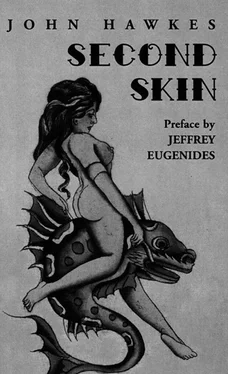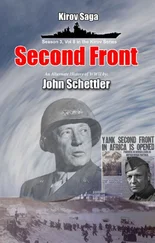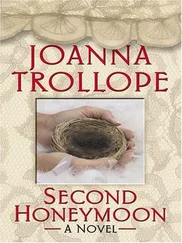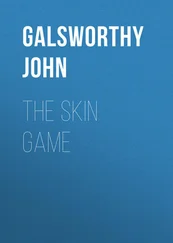I took hold of the handle. Turned, pulled, shook the handle. “Come on, Bub,” I said, leaning down, rapping on the glass, shading my eyes and attempting to peer into the car, “open the door, you’re not funny.” I squinted, brushed at the snow with a cold hand. I saw the two heads of hair and the knife-billed baseball cap between them in the back, saw Bub laughing, poking at Captain Red who sat behind the wheel holding the pint bottle up to his lip. I saw the pint bottle making the rounds.
“All right,” I said, when the door came open at last, “now get out for a moment, Bub. You can sit on my lap.”
“Now wait a minute. Just you wait. I got this seat first. Didn’t I? If there’s any lap-sitting to be done, it’s you who’s going to do it. Now you want to ride to the dance with us you better just climb into the car and have a seat. Right here.” Pointing. Laughter. Bottle sailing out the window. Captain Red — tall man dressed in his Sunday duds, shaved, fit to kill — blowing the horn three times. Three shrill trumpet blasts through the falling snow.
“But, Bub,” leaning closer, trying to whisper into his ear, “I’m bigger than you are. I’ll be too heavy.”
And the shout: “Never you mind about that. I’ll do the worrying, you just do what I say. And I say you can sit on my lap or you can walk!”
Then there was the meshing of metal, the hard shower of snow, sparks under the snow, and if I hadn’t leapt — puffing, pumping, displaying blind humiliating courage since it’s always the fat man who has to run to catch the train — surely I would have been left behind, left standing there with my hopeless breath freezing on the dark night air. An evening at home. Evening with Grandma. Up and down to the lavatory. Smiles. But I did leap, sucked all possible breath into my lungs and desperate, expecting and even willing to be maimed, for five or ten steps plowed along beside the moving car and then jumped, ducked my head, got a grip on the dashboard and back of the seat, hunched my neck and shoulders — presence of mind to save fingers, feet, loose ends of cloth and flesh from the slamming door — and perched there, balanced there absurdly on Bub’s tough wiry little lap. Steaming upholstery, six steaming people. Smells of gasoline, spilled whiskey, fading perfume, antifreeze. And Bub. With my head knocking against the roof of the car I knew him for what he was: a boy without underwear, holes in his socks, holes in his pockets, rancid navel, hair bunched and furrowed on the scrawny nape of his neck, and the mouth forever breathing off the telltale smell of sleep and half-eaten candy bars. This country boy, this island boy. Filled with fun. With hate. With smelly self-satisfaction.
“Jingle Bells, everybody,” cried Miranda, “sing along with me!” But we were swerving, skidding, sliding through the snow and all at once the lights of the high school were flickering above the tombstones in the cemetery on the hill.
And into the tiny exposed orifice of Cassandra’s ear: “I got dibs on the first dance,” said Jomo, and I understood the meaning of her downcast eyes and through the snow I heard that the bass drum was out of time with the rest of Jack Spratt’s Merry Hep Cats.
But how long, oh my God, how long did I endure that drummer — pimples, frightened eyes, chewing gum under his chair, some kind of permanent paralysis in his legs — how long endure the cornet — begging for alms — or the little girl with the accordion — black and white monster on her bare knees — or the poor stick of a schoolteacher at the upright piano or the paper cups of pop, the wedges of chocolate cake — chocolate on the lips, cheeks, melting all over the hands — how long endure the concrete walls, steam pipes, varnished and forbidding floor, the red, white and blue bunting hung from the nets, how long endure the mothers or the fat old men waiting around for the belly-bumping contest? How long? How long endure all this as well as the sight of Jomo going after Cassandra with his damnable hook? Long enough to be tempted into love once more, long enough to perspire in that cold gymnasium, to win the belly-bumping contest — treachery of my long night-long enough to have my fill of pop and chocolate cake. Too long, oh God, much too long for a man who merely wanted to dance a few slow numbers and amuse his daughter.
“If the power fails,” and I startled at the sound of Red’s deep voice, glanced at the uncertain yellow glow of the caged lights, glanced at the windows filled with wind and snow, “if it fails there’s no telling what all these kids will do. Might have quite a time in the dark. With all these kids.” And the two of them, widow in black, Captain Red in black double-breasted suit, swung out to the middle of the floor, towered above that handful of undernourished high school girls and retarded boys. Two tall black figures locked length to length, two faces convulsed in passion, one as long and white and bony as a white mare’s face, the other crimson, leathery, serrated like the bald head to which it belonged, and the young boys and girls making way for them, scattering in the path of their slow motion smoke, staring up at them in envy, fear, shocked surprise. From the side lines and licking my fingers, swallowing the cake, I too watched them in shocked surprise, stuffed a crumpled paper napkin into my hip pocket. Because they were both so big, so black, so oblivious. But if this was the father, what of the ruthless son? What of Cassandra? What dance could they possibly be dancing?
I was her guardian, her only defense, and I tossed off my Coke — fifth free Coca-Cola, thoughts of Sonny — crushed the cup, and in my heavy dogtrot ran the whole length of that cold basketball court and in the darkest corner saw a flash of steel, the sheen of bright green taffeta. And paused. Bumped a proud mother. But started out onto the floor anyway. Alone. Breathless. Trying to avoid the dancers.
“Say there,” behind me the woman’s voice, sound of Sunday supper in the Lutheran church, “that fellow’s got a nerve.”
“Don’t he though? And all these young boys in uniform and men like that going around scot free? Lord God. Ain’t it a crime?”
The boys were wearing their white shirts — frayed collars, patches in the sleeves — and their wrinkled ties, the young girls were wearing their jerseys, homemade skirts, glass earrings— hand-me-downs — their cotton socks and saddle shoes. And I was among them and I looked into their frightened eyes, looked through the jerseys, and despite my desperation I was able to keep my wits about me — interesting little blonde, sweet raven head — and was not ashamed to look. Sixteen, seventeen, even nineteen years old and undernourished and undeveloped as well. Daughters of poor fishermen. Daughters of the sea. Anemic. Disposed to scabies. Fed on credit, fed on canned stock or stunted berries picked from a field gone back to brier, prickly thorns, wild sumac. Precious brass safety pins holding up their panties, and then I saw the pins, all at once saw the panties, the square gray-white faded undergarments of poor island girls washed in well water morning and night and, indistinguishable from kitchen washrag or scrap of kitchen towel, hung on a string between two young poplars and flapping, blowing in the hard island wind until once more dry enough and clean enough to return to the plain tender skin, and of course the elastics had been worn out or busted long ago and now there were only the little bent safety pins for holding up their panties and a few hairpins for the hair and a single lipstick which they passed from girl to girl at country crossroads or in the high school lavatory on the day of the dance. Plain Janes, island sirens, with long skinny white legs — never to know the touch of silk — and eyes big enough and gray enough to weep buckets, though they would never cry, and little buttocks already corrupted, nonetheless, by the rhythm of pop melodies and boys on leave. I steadied myself on a thin warm shoulder. “Don’t be afraid,” I murmured, “it’s only Papa Cue Ball,” and smelled the soap in her straight shining hair and saw that her skirt had once belonged to Mamma — poor skillful pleats — and that her face revealed the several faint nearly identical faces of a little Dionysian incest on a winter’s night.
Читать дальше












